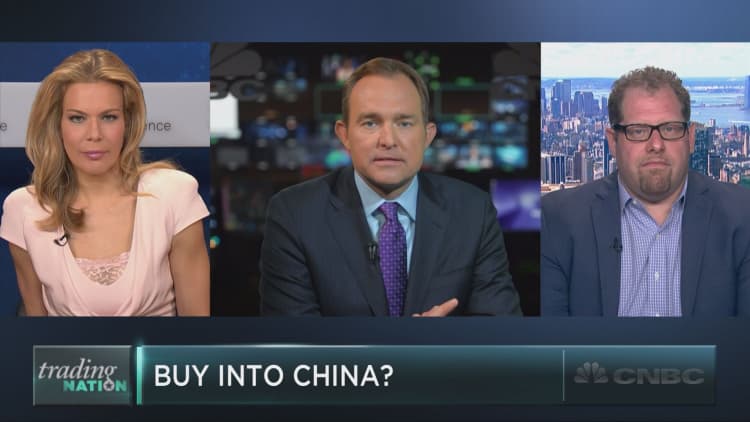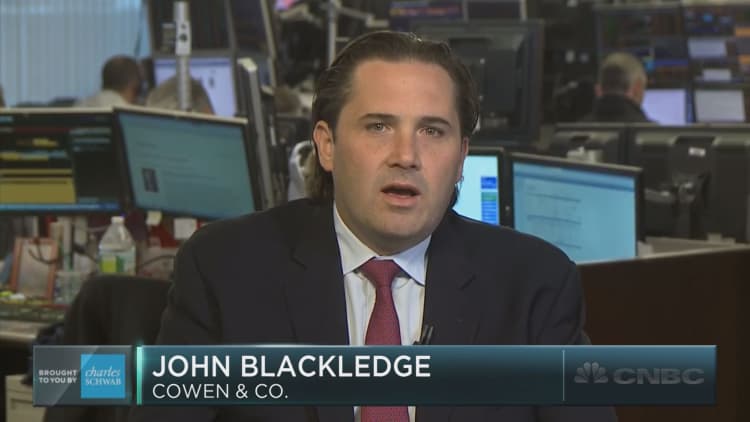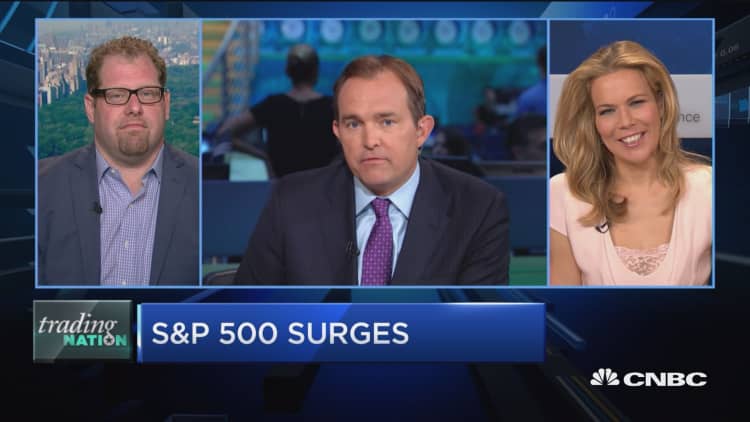


China's Shenzhen Index is finally out of bear market territory for the first time in a year, leading two traders to believe that the Chinese market could be ripe for U.S. investors.
Erin Gibbs, equity chief investment officer at S&P Global, points out that the relatively low correlation between the Shenzhen and the S&P 500 suggests diversity benefits for U.S. investors who add Chinese exposure.
A low correlation between two stocks or indexes, in this case between the Shenzhen and the S&P 500, generally yields portfolio benefits as it reduces the overall volatility of a portfolio. For investors, this means that even though there's less of a chance that both will move up together, there's also less of a chance that both will fall together in the long term.
What's more, the index is also now valued at $2.5 trillion, which may seem small compared with the $20 trillion value of the S&P 500, but which is quite significant when compared with other foreign indexes, according to Gibbs.
For that reason, investors who want some exposure to all of the world's biggest markets should strongly consider buying into China.
The Shenzhen's exit out of bear market territory comes just two weeks after China's A-shares were delayed entry into the MSCI Emerging Markets Index, with the MSCI stating that "improvements in the accessibility of the China A-shares market" were needed before inclusion. Gibbs, however, sees China's inclusion as imminent, especially given the country's growing GDP and its increasing accessibility to foreigners, which would directly address the MSCI's criteria.
Many of the market trends in China lead Manhattan Venture Partners chief economist Max Wolff to believe U.S. investors can look toward Chinese markets. The nature of Chinese investors, in particular, could play a big part as a large contingent are retail investors, meaning that the markets' unpredictable nature could actually contribute to driving down the Shenzhen's correlation with the S&P 500.
"It's very retail driven, it's very domestic and it's very inward looking, so you're kind of betting on a barometer of the Chinese investors, mostly retail sentiment about China," Wolff said. "You should have some exposure, and it's been in the shadows for so long a time that it sort of makes sense that a lower correlation is part of what you should get exposure to [for diversifying] your portfolio."
The Shenzhen also rose marginally higher on Thursday, but traders are still waiting for the index to break out of a trading range that has persisted since February of this year.





